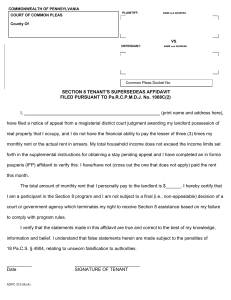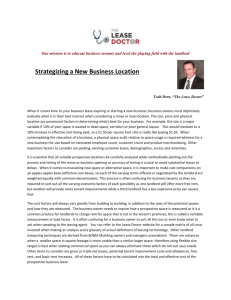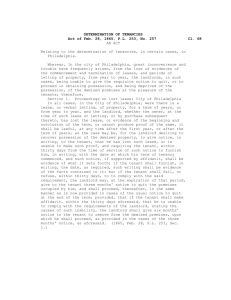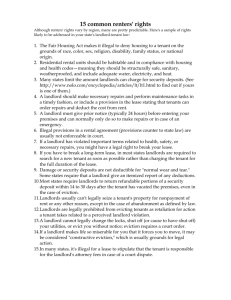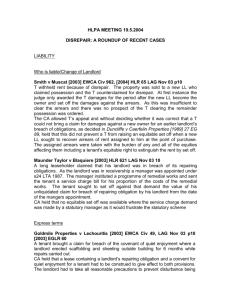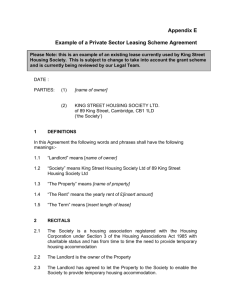Landlord-Tenant Law Quiz: Property Law Questions
advertisement
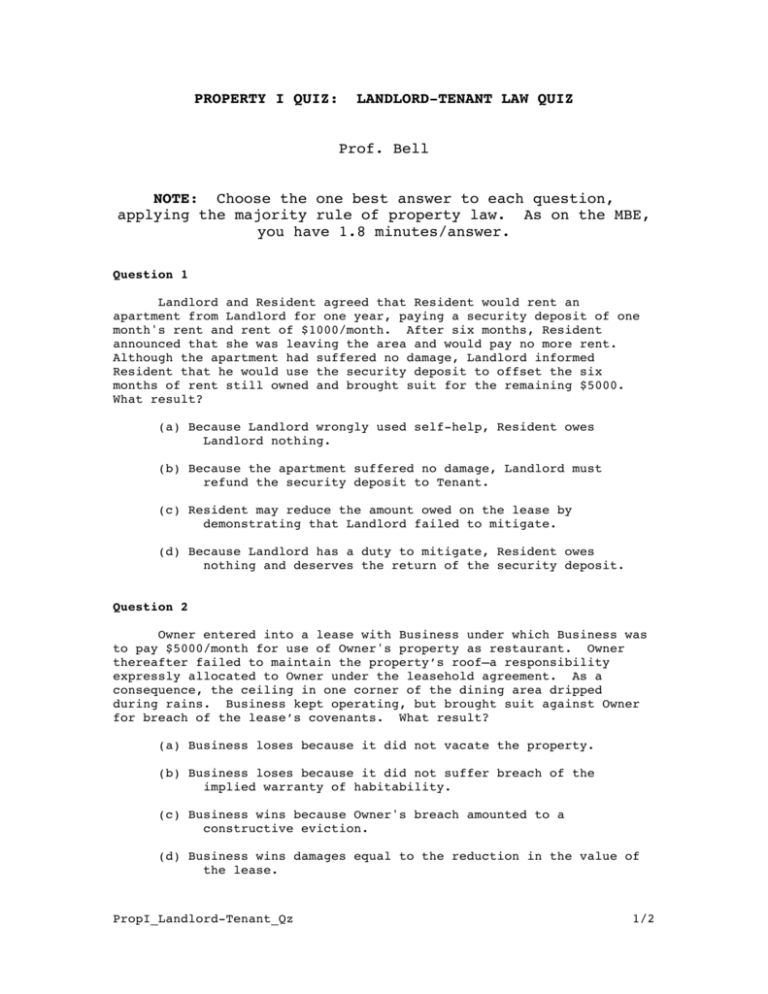
PROPERTY I QUIZ: LANDLORD-TENANT LAW QUIZ Prof. Bell NOTE: Choose the one best answer to each question, applying the majority rule of property law. As on the MBE, you have 1.8 minutes/answer. Question 1 Landlord and Resident agreed that Resident would rent an apartment from Landlord for one year, paying a security deposit of one month's rent and rent of $1000/month. After six months, Resident announced that she was leaving the area and would pay no more rent. Although the apartment had suffered no damage, Landlord informed Resident that he would use the security deposit to offset the six months of rent still owned and brought suit for the remaining $5000. What result? (a) Because Landlord wrongly used self-help, Resident owes Landlord nothing. (b) Because the apartment suffered no damage, Landlord must refund the security deposit to Tenant. (c) Resident may reduce the amount owed on the lease by demonstrating that Landlord failed to mitigate. (d) Because Landlord has a duty to mitigate, Resident owes nothing and deserves the return of the security deposit. Question 2 Owner entered into a lease with Business under which Business was to pay $5000/month for use of Owner's property as restaurant. Owner thereafter failed to maintain the property’s roof—a responsibility expressly allocated to Owner under the leasehold agreement. As a consequence, the ceiling in one corner of the dining area dripped during rains. Business kept operating, but brought suit against Owner for breach of the lease’s covenants. What result? (a) Business loses because it did not vacate the property. (b) Business loses because it did not suffer breach of the implied warranty of habitability. (c) Business wins because Owner's breach amounted to a constructive eviction. (d) Business wins damages equal to the reduction in the value of the lease. PropI_Landlord-Tenant_Qz 1/2 PROPERTY I QUIZ: 1. LANDLORD-TENANT LAW Under the majority rule, landlords have a "duty to mitigate" in the event of a tenant's default, meaning that the tenant may raise failure to mitigate as a defense to damages. (a) is wrong because Landlord did not engage in self-help, a concept that better applies in cases of ejectment. (b) is wrong because security deposits may typically be used to offset costs of a tenant's default. (c) is the best answer because it describes the effect of the (so-called) duty to mitigate. (d) is wrong because the duty to mitigate does not give a tenant a perfect defense against all damages. 2. See pp. 489-90 for an explanation of the law in this area. (a) is wrong because vacating the property is not necessary to recover partial damages for breach of the implied covenant of quiet enjoyment. (b) is wrong because the implied warranty of habitability is not at issue here; it is a commercial lease. (c) is wrong because the breach did not rise to the level of constituting constructive eviction. (d) is the best answer because partial damages may be had for breach of the lease even absent vacation from the property.
